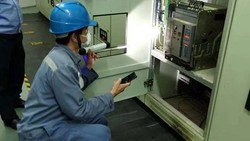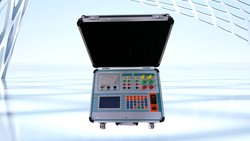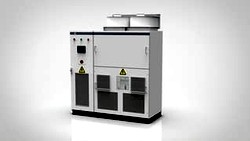In today's changing energy landscape the merging of grids and energy storage systems marks a significant stride, towards achieving effective, dependable and eco-friendly power management. It is crucial for engineers, decision makers and testing engineers to grasp the synergy between these two technologies to nurture a flexible energy infrastructure.
Understanding Smart Grids
A smart-grid is an electricity network that utilizes digital communication technology to detect and respond to local usage fluctuations. Unlike traditional power grids, smart grids establish a communication channel between the utility provider and its consumers. This seamless exchange of data allows for monitoring, analysis and control of the energy distribution network.
Equipped with sensors, smart meters and cutting edge analytics tools, smart grids enable real time data collection and processing. This data centric approach not enhances the efficiency and reliability of electricity delivery. Also facilitates the integration of renewable energy sources such as solar and wind – which are inherently variable and distributed in nature.
The Role of Energy Storage
Energy storage systems play an important role in managing the characteristics of renewable energy sources.
By storing energy produced when power demand is low and releasing it during peak times, these systems help balance the supply and demand of electricity, ensuring an uninterrupted power supply.
There are types of energy storage technologies including batteries, flywheels pumped hydro storage and compressed air energy storage. Among these options, Lithium ion batteries have gained popularity due, to their high energy capacity, efficiency and decreasing costs.
The Synergy Between Smart Grids and Energy Storage
The combination of grids with energy storage systems creates a partnership that boosts the overall performance and dependability of the power grid. Below are some advantages of this collaboration:
Enhanced Grid Stability and Reliability
Smart grids integrated with energy storage systems can swiftly adapt to changes in energy supply and demand. When demand is high, stored energy can be used to stabilize the grid preventing power outages. Conversely, during low demand periods surplus energy can be stored for use.
Efficient Integration of Renewable Energy
Energy sources, like solar and wind power are inconsistent and unreliable. Energy storage systems can store energy generated when the sun is shining or the wind is blowing strongly for use when these sources are not actively generating power.
This helps maintain a dependable source of energy decreasing the dependency, on fossil fuels.
Demand Response and Peak Shaving
Smart grids facilitate demand response initiatives encouraging consumers to cut back on energy consumption during peak hours. Energy storage systems play a role in these efforts by offering power when needed. This not eases the pressure on the grid. Also aids in peak shaving ultimately reducing energy expenses.
Enhanced Power Quality and Resilience
Energy storage systems can provide services like voltage regulation and frequency control, enhancing power quality. In case of a grid outage these systems can serve as power sources strengthening the grids resilience and ensuring power supply to essential infrastructure.
Economic Advantages
The integration of grids and energy storage has the potential for economic gains. By optimizing energy resource utilization and minimizing reliance on peak power plants utilities can cut down expenses. Moreover, consumers can enjoy reduced energy bills through demand response programs and time based pricing structures.
Obstacles and Future Outlook
Despite the advantages of incorporating grids, with energy storage systems comes with its own set of challenges.
Initial expenses, regulatory barriers and the necessity, for cybersecurity measures pose challenges that must be tackled. Nonetheless, continuous technological advancements and supportive policies are paving the way for acceptance.
Looking to the future, there is an outlook for grids and energy storage. With innovations and increasing investments, these technologies are poised to play a role in transitioning towards a more sustainable and resilient energy system.
Takeaway
The integration of grids and energy storage systems brings advantages, such as improved grid stability, effective integration of renewable energy sources demand response capabilities, enhanced power quality and economic benefits. As we progress in technology and surmount obstacles, the collaboration between grids and energy storage will be pivotal, in shaping the future of energy management.
If you have any questions or require information regarding our smart-grid and energy storage solutions, please feel free to contact us Contact Us. We are here to support you and appreciate your input.
Contact Us. We are here to support you and appreciate your input.
Until then, keep shining bright like a solar panel on a sunny day!
Editor's note: This article was originally published in July 2024 and has been updated for comprehensiveness.







All comments are moderated before being published. Inappropriate or off-topic comments may not be approved.